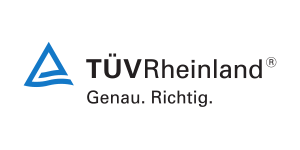Datenschutz – nicht Ihr Lieblingsthema? Unseres schon.
Wir helfen Unternehmen dabei, die Anforderungen der DSGVO umzusetzen – digital, so einfach wie möglich, zu fixen Konditionen.
Dazu gehört der Service des ext. Datenschutzbeauftragten und Meldestellenbeauftragten (HinSchG) sowie das Privacy Hub – SaaS zur Automatisierung der DSGVO auf Websites.
Datenschutz 2024
Vielfalt ist Trumpf
Das Team der Cortina Consult GmbH berät Unternehmen aller Branchen seit mehr als zehn Jahren zu allen Belangen des Datenschutzes (BDSG -neu, DSGVO). Das Team aus Datenschutzbeauftragten, Juristen, Entwicklern und Marketing–Experten unterstützt Sie sowohl strategisch als auch aktiv bei der Umsetzung notwendiger Datenschutzmaßnahmen. Unsere Dienstleistung besteht dabei aus drei modularen Bausteinen: Beratung zu allen Themen der DSGVO, softwarebasiertes Projektmanagement und Wissensvermittlung via Academy.
Als Externer Datenschutzbeauftragter unterstützen wir Sie bei der Umsetzung der Anforderungen der DSGVO in Ihrem Unternehmen.
Die Whistleblower-Richtlinie verpflichtet Unternehmen und Organisatoren geeignete Hinweisgebermeldestelle für die Meldung von Compliance-Verstößen einzurichten. Wir übernehmen das für Sie!
Komplexität reduzieren, Automatisierungen im Datenschutzprozess für Ihre Unternehmung etablieren – unser Wissen aus 10 Jahren Datenschutzberatung haben wir in unserer DSGVO-Academy gebündelt, unsere digitale Assistenz begleitet Sie Schritt für Schritt durch das Datenschutzprojekt
Datenschutz-Lösungen für KMU
Jedes Unternehmen ist individuell. Doch die pain points der Datenschutzgrundverordnung sind in vielen Organisationen ähnlich. Unsere Erfahrungen aus der praktischen Umsetzung und Anwendung der DSGVO nutzen unsere Datenschutzberater, um unseren Kunden ein effizientes Datenschutzmanagement zu ermöglichen – von der Beantwortung einzelner Fragen bis zur Stellung des externen Datenschutzbeauftragten.
Über Cortina Consult
Cortina Consult ist einer der innovativsten Beratungsdienstleister für das Thema Datenschutz (DSGVO) in Deutschland. Als externer Datenschutzbeauftragter unterstützen wir unsere Kunden beim Aufbau eines praxistauglichen Datenschutzkonzepts – vom Audit bis zur Pflege der Datenschutzdokumentation.
Warum Cortina Consult?
Unser Team ist authentisch, schnell und sehr vielfältig in Bezug auf Ausbildung und Skillset. Wir haben viel gesehen: von schnell wachsenden Start-ups bis zu international agierenden DAX-Konzernen – und uns verbindet die Leidenschaft, das Beste aus beiden Welten in unseren Daternschutzprojekten zu vereinen.



Verbindliche Projektbudgets & Pauschalpakete.
Unser Team arbeitet effizient, zielgerichtet und agil.
Unsere Leistungen werden auf Ihre Anforderungen angepasst.
TÜV-zertifizierte Datenschutzbeauftragte
Wir beraten Unternehmen bundesweit
Wir unterstützen Sie als externer Datenschutzbeauftragter unter anderem in folgenden Städten und den dazugehörigen Regionen (remote und/oder vor Ort):
Berlin, München, Hamburg, Münster, Düsseldorf, Köln, Frankfurt, Leipzig, Dortmund, Bochum, Bielefeld, Bonn, Bremen, Essen, Freiburg, Hannover, Osnabrück, Würzburg, Dresden, Stuttgart, Regensburg, Chemnitz, Kiel, Karlsruhe, Aachen, Augsburg, Braunschweig, Rostock, Nürnberg uvm.
Bereit das Thema Datenschutz abzuhaken?
Entdecken Sie unsere Datenschutz-Pauschalpakete für verschiedene Unternehmensgrößen und Anforderungen.
Bleiben Sie up-to-date
Registrieren Sie sich für unseren kostenlosen Newsletter mit lesenswerten Neuigkeiten zum Datenschutz und Best-Practices zur Umsetzung.
* Pflichtfeld. Mit der Registrierung erklären Sie Ihr Einverständnis zum Erhalt des Cortina Legal-Updates mit Mailchimp sowie zur Interessen-Analyse durch Auswertung individueller Öffnungs- und Klickraten. Zu Ihrer und unserer Sicherheit senden wir Ihnen vorab noch eine E-Mail mit einem Bestätigungs-Link (sog. Double-Opt-In); die Anmeldung wird erst mit Klick auf diesen Link aktiv. Dadurch stellen wir sicher, dass kein Unbefugter Sie in unser Newsletter-System eintragen kann. Sie können Ihre Einwilligung jederzeit mit Wirkung für die Zukunft und ohne Angabe von Gründen widerrufen; z. B. durch Klick auf den Abmeldelink am Ende jedes Newsletters. Nähere Informationen zur Verarbeitung Ihrer Daten finden Sie in unserer Datenschutzerklärung.
